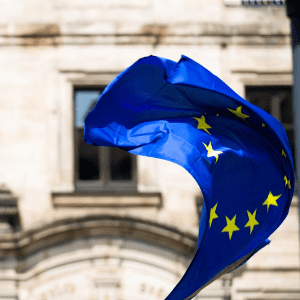The European Travel Commission (ETC) has today released its latest report on Monitoring Sentiment for Domestic and Intra-European Travel, providing insights into European travel plans in spring – summer 2023.
Travel, providing insights into European travel plans in spring – summer 2023.
Most European travellers (77%) intend to take a trip during the first 6 months of 2023. This represents a sharp increase of 16% compared to last year’s figures. Travellers also show a growing desire to travel outside their own country, with 63% of respondents now favouring international trips within Europe. This accounts for double-digit growth of 13% in just one year.
Remarkably, their planned holiday budget remains unchanged, showing determination to travel despite financial uncertainty. Up 6% from a year ago, 37% of Europeans will still spend between €1,000 – €2,000 per person per trip for their next holiday. An additional 19% will spend more, exceeding the €2,000 mark.
Commenting on the research, Luís Araújo, President of ETC, stated: “The recent figures show that travel remains a top priority for Europeans in the first half of 2023. This is welcome news, especially considering much of the intended travel is planned within Europe. These trends paint a hopeful picture for the sector this year, and prove its resilience in the face of global economic challenges. Now, to capitalise on consumer confidence and early bookings, the industry should closely follow and anticipate shifts in consumer needs and tailor its offers accordingly.”
Europeans changing their habits to continue travelling
The research shows that the current financial climate remains a significant concern for travellers. Rising travel costs worry 23% of Europeans, while an additional 18% say that their personal finances and economic situation are preoccupying.
Travellers are responding to the financial challenges with a more proactive and flexible purchase behaviour. Europeans are committing to their trips earlier than a year ago: 44% have already fully or partially booked their next holiday, a 7% increase over 2022. In choosing a destination, attractive deals and bargains (17%) are of key concern, second only to pleasant weather (18%).
Another behavioural change is in spending habits during trips. Most respondents plan to reduce their shopping at the destination (18%), book less expensive accommodation (16%) and choose more affordable restaurants (15%) to fit into their holiday budget. Purchasing all-inclusive packages and visiting fewer attractions with an entrance fee are also considered by 12% and 10% of respondents, respectively.
Travel budgets remain a priority
Even as energy costs soar and basic necessities such as food and clothing follow suit, travel continues to be a high priority for Europeans. Notably, travel is the only discretionary expense that people are prepared to maintain (59%) or increase (16%) spending on in today’s economic conditions. In fact, 58% of respondents plan to travel at least twice, either domestically or internationally, in the coming months.
Conversely, the outlook is not bright for retail spending on items such as electronics and clothing, as well as leisure and recreation purchases for concerts, dining out, and sports. Less than half of respondents (47%) plan to spend the same amount in these categories, while only 8% consider increasing their expenses.



















